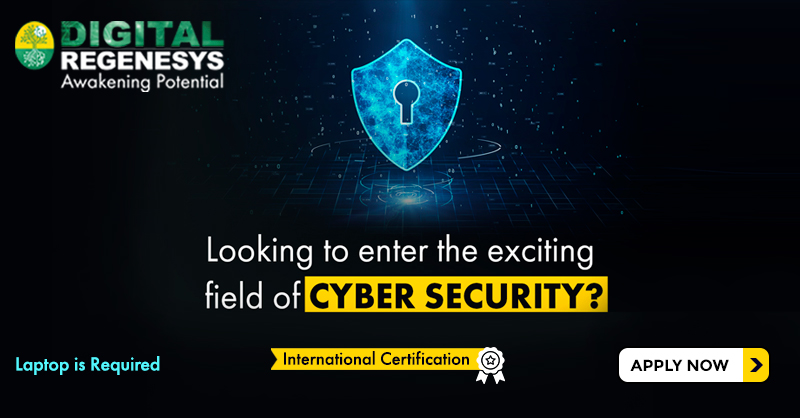Cybersecurity Course in South Africa: How to Choose the Right One?

Choosing the right Cybersecurity course in South Africa is an essential step if you want to build a meaningful career in the digital space. With cyber threats growing across industries, the demand for skilled professionals is higher than ever, but finding the right learning path can feel overwhelming. We will walk through factors such as course length, level of qualification, recognition, and how each option fits different career goals.
In this article, we will cover the benefits of enrolling for a Cybersecurity course, who these courses are designed for, and why learners should select accredited courses.
Why Enrol For a Cybersecurity Course in South Africa?
The best Cybersecurity courses in South Africa equip learners with essential knowledge and practical skills to thrive in a fast-paced, high-demand field. They combine theory with hands-on experience, ensuring learners can apply what they learn to real-world security challenges.
The following points highlight the reasons why learners should enrol for a Cybersecurity course:
1. Foundational Knowledge of Security Principles
Learners gain a strong understanding of core concepts, including network security, risk management, and cyber defence strategies, forming a solid base for all Cybersecurity roles.
2. Hands-on Insights into Real-World Cyber Threats
Courses expose learners to common cyber attacks and defence tactics, helping them understand how threats occur and how to prevent them effectively.
3. Proficiency in Encryption and Privacy Tools
Students learn to protect sensitive data using encryption methods and privacy tools, ensuring they can secure information in professional environments.
4. Practical Exposure to Threat Detection Techniques
Training covers real-time monitoring, threat analysis, and incident response, enabling learners to detect and respond to security incidents confidently.
5. Practical Expertise in Web Application Security
Learners explore methods to secure websites and applications against vulnerabilities, safeguarding organisations from cyber exploits.
6. Hands-on Experience with SOC and EDR Tools
Students gain experience with Security Operations Centres (SOC) and Endpoint Detection and Response (EDR) tools, which are vital for monitoring and protecting networks.

Who Should Enrol in Cybersecurity?
As technology becomes deeply interlinked into everyday life, Cybersecurity offers a meaningful path for those driven to safeguard the digital world. It’s ideal for those who are curious about technology and motivated to make a real impact by keeping information secure in a world driven by data.
Cybersecurity welcomes learners from all walks of life who want to build a meaningful, advanced career.
- Technology Enthusiasts – Individuals passionate about how technology works and eager to understand systems, networks, and digital defences will find this field both exciting and intellectually stimulating.
- IT Professionals – Those already working in information technology can enhance their careers by specialising in system protection and network defence.
- Students and Graduates – Learners with backgrounds in computer science, engineering, or related fields can establish a strong foundation for a growing, in-demand career.
- Career Changers – Professionals from non-technical fields who are passionate about technology and security can transition into Cybersecurity with the proper training.
- Business Owners – Entrepreneurs benefit from Cybersecurity knowledge to safeguard their operations and customer data.
Benefits of a Cybersecurity Course in South Africa
Building a prosperous future in technology requires clear direction, and a Cybersecurity course in South Africa is designed to do precisely that. One can start their Cybersecurity career journey by completing a Certification Course in Cybersecurity. The career goals associated with this course are not only about acquiring technical skills but also about shaping a path that leads to stability, growth, and purpose.
Below, we explain its core importance and what learners can expect when choosing this career direction:
1. Develop Core Technical Skills
A Cybersecurity course equips learners with practical knowledge in network security, ethical hacking, and incident response. These skills enable individuals to tackle real-world cyber threats effectively.
2. Boost Employability and Career Readiness
Completing a recognised course demonstrates competence and commitment, helping learners stand out to employers. It also prepares them for in-demand roles such as Cybersecurity analyst or penetration tester.
3. Create Career Flexibility
Trained professionals can work across various industries, including banking, healthcare, government, and IT services. This flexibility allows individuals to choose paths that align with their interests and goals.
4. Build Professional Confidence
Handling real-world security challenges during the course develops confidence in decision-making. Learners gain the ability to protect business operations and maintain trust in digital systems.
5. Support Growth and Financial Stability
The course lays the foundation for advanced certifications and leadership roles, providing long-term career progression opportunities. Cybersecurity also provides competitive salaries and consistent demand, ensuring both professional and financial fulfilment.
Read more: Why Cybersecurity is Critical for Business Operations?
Beginner vs Advanced Tracks For Cybersecurity Course in South Africa
When deciding on a Cybersecurity course in South Africa, learners often face the choice between starting with a beginner course or aiming directly for advanced study. Both routes have their place, and understanding the difference helps learners make confident, career-driven decisions.
Below, we examine each track in detail to illustrate how they influence various stages of a professional’s journey:
1. Beginners Track
For those taking their first steps into a Cybersecurity course in South Africa, beginner courses are designed to make the journey approachable and confidence-building. They provide a clear foundation that helps learners understand the essentials before moving into advanced areas.
Here are the main points that define the beginner track:
Fundamental Cybersecurity Concepts – This is the foundation where you learn what Cybersecurity is and why it matters. It covers basic concepts, such as how data moves through networks and the everyday practices that keep information secure.
Threats, Vulnerabilities and Mitigation Techniques – Threats are dangers such as hackers or malware, while vulnerabilities are the weaknesses they exploit. Mitigation involves fixing those weaknesses or adding protective measures to reduce risk.
Security Architecture – This is about designing systems with built-in security at every level. It employs layers of protection so that even if one fails, others still maintain the system’s security.
Security Operations – These are the daily activities that maintain Cybersecurity, like monitoring networks and responding to incidents. They focus on identifying problems early and keeping systems up to date for safety.
Governance, Risk and Compliance (GRC) – Governance sets the rules and responsibilities for maintaining security. Risk and compliance ensure threats are managed wisely and legal or industry standards are followed.
2. Advanced Track
For learners who already have a solid grounding in Cybersecurity course in South Africa, advanced tracks take skills to the next level with deeper technical expertise and leadership development. These courses focus on specialisation and career progression.
Advanced tracks prepare professionals for specialised or senior roles through focused learning in the following key areas:
- Network Security Essentials – This focuses on protecting data as it moves across networks and preventing unauthorised access. You’ll learn to use tools like firewalls and intrusion detection systems to build strong, secure network environments.
- Web Application Security Essentials – This area teaches how to secure websites and online applications from hackers. You’ll understand standard attack methods and learn how to protect against issues such as weak authentication and code vulnerabilities.
- SIEM Essentials – Security Information and Event Management (SIEM) helps collect and analyse security data from various sources. You’ll learn how to detect unusual patterns, correlate events, and respond quickly to potential threats.
- EDR Essentials – Endpoint Detection and Response (EDR) focuses on protecting individual devices such as laptops and servers. You’ll learn how to monitor endpoints for suspicious activity and take quick action to contain or remove threats.
- SOC Essentials – A Security Operations Centre (SOC) is a facility where security professionals monitor and respond to cyber incidents in real-time. You’ll explore how teams work together to identify, analyse, and resolve security issues effectively.
By understanding these differences, learners can choose the path that best matches their current stage and long-term goals in Cybersecurity for beginners SA and beyond.
Read More: Types of Cyber Attacks: Learn How to Protect Your Systems
Why Accreditation Matters For Cybersecurity Courses
Accreditation ensures that a Cybersecurity course in South Africa meets recognised educational and industry standards. Choosing an accredited course, such as the Digital Regenesys Certification Course in Cybersecurity, can significantly enhance career prospects and ensure that the learning outcomes align with professional expectations.
The following points highlight the importance of accreditation:
- Recognition by Industry Bodies – Accredited courses are acknowledged by leading Cybersecurity organisations, ensuring alignment with current industry standards and best practices.
- Quality Assurance – Accreditation guarantees that the curriculum, teaching methods, and assessments meet strict quality criteria, providing learners with reliable and practical training.
- Enhanced Employability – Employers prefer candidates who have completed accredited programs, as these demonstrate verified competence and readiness to handle real-world Cybersecurity challenges.
- Pathway to Advanced Certifications – Accredited courses often serve as prerequisites for higher-level certifications, allowing learners to progress in their careers with recognised credentials.
You may also like: Cybersecurity Course Eligibility in South Africa: Follow this Career Path to Success

Conclusion
A Cybersecurity course in South Africa offers more than technical training; it lays the foundation for a successful and adaptable career. By understanding course options, specialisations, delivery modes, and accreditation, learners can make informed choices that match their goals. These courses build practical skills, professional confidence, and industry awareness, preparing individuals to take on challenging roles, advance steadily, and make a meaningful impact in South Africa’s growing digital economy.
Visit Digital Regenesys to explore more about the latest ongoing and evergreen career choices and opportunities trending in today’s job market.
Last Updated: 8 October 2025
